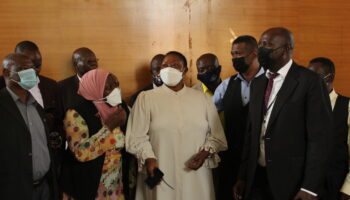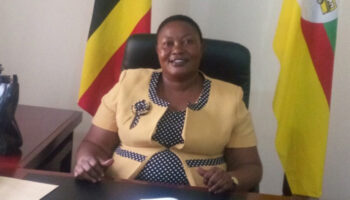By Milly Babalanda
As we mark this year’s International Women’s Day, the role of women in development needs to be emphasised. Women’s economic empowerment is essential to addressing the barriers in the way of their involvement in socioeconomic opportunities. Creating livelihoods opportunities for women enables them to have an equal opportunity to participate at all levels of society while joining the money economy.
On this occasion of observing women’s day, we ought to recall that a prosperous woman brings prosperity to the entire family. Women are nurturers, the factor that bonds all humanity under one shade.
As a precursor to attaining full women empowerment and involvement in the economy, Uganda operates a highly favourable, well thought out world famous women emancipation programme. Women are leaders and they are leaders with substance!
To exemplify, in the main Government structure, women are privileged to hold the positions of; Vice President (Rtd. Maj. Jessica Alupo), Prime Minister (Rt. Hon. Robinah Nabbanja); Cabinet ministers like myself, Hon. Ruth Nankabirwa (Energy and Mineral Resources), Hon. Betty Amongi (Gender, Labour and Social Development), Dr. Monica Musenero (Science and Innovation), Hon. Maama Janet Museveni (Education and Sports), Hon. Judith Nabakooba (Lands, Housing and Urban Development), Rt. Hon. Rebecca Kadaga (2nd Deputy Prime Minister and Minister for East African Affairs), Hon. Lukia Nakadama (3rd Deputy Prime Minister and Minister Without Portfolio), Hon. Kasule Lumumba (General Duties, OPM), Hon. Jane Ruth Aceng (Health) among others.
Elsewhere, women hold the portfolios of Inspector General of Government (IGG), Deputy Speaker, and numerous postings of power in the Judiciary, Academic, Defence and Security, Parliament (as people’s representatives), Civil Service and so on.
I congratulate my fellow women on holding fort and doing us proud!
Also, through Private Sector Foundation (PSFU), Uganda was the first country in Africa to endorse the Gender Equality Seal for private enterprises. Making business adopt the Gender Equality Seal was an innovation for closing gender gaps in corporate, business and work environment. In 2015, Government took an early lead in localising and aligning the 17 Sustainable Development Goals (SDGs) to the (second) National Development Plan which was a landmark achievement for Uganda. The outcome of this move set a national framework for financing and monitoring women’s economic empowerment in various sectors such as Agriculture and Tourism.

Therefore, as far as I am concerned, women are well positioned to serve and excel on the way up the ladder. All they need is support to achieve their full potential. We need a movement of women groups, associations and networks that regularly convene and share knowledge, skills and networks to enhance their presence in the economic sphere; a women movenet that smells the opportunities all around us.
Researchers at United Nations Development Programme (UNDP) report that there is a strong relationship between economic activity and violence against women and girls, especially in the home and communities. On the one hand, earning an income and owning assets has the potential to protect women and girls from exposure to violence, sexual exploitation and abuse within and outside the home, and has the potential to increase their confidence, self-worth, self-esteem, decision-making and negotiating power.
Wrong economic policies not only deny women economic power but they also expose them to various forms of violation since they are seen to be challenging men’s control and power in homes and communities. However, NRM has always been sensitive to gender stability. All its empowerment interventions mean to leave nobody behind.
On Saturday, February 26, 2022, H.E the President presided over the launch of the Parish Development Model (PDM) in Kibuku district. This flagship programme aims at moving 39% of Ugandans from the culture of working for consumption to working for consumption and the market. PDM is also a culmination of NRM’s “Securing Your Future” slogan as used in last year’s general elections as one big way for the party to fulfill the contract entered into with Ugandans in its Manifesto.
The advantage with PDM unlike previous empowerment models is that the money comes directly to the community level-parishes, where it stays.

I was privileged to be part of a ministerial team led by the Prime Minister which carried out pre-launch sensitisation for the programme. I saw optimism in the eyes of Ugandans. They are ready to make the next step into the prosperity ring, not least of them, women. I urge women to turn up in organised groups to benefit from the funds allocated at the parishes, closer to home.
Many communities throughout Uganda have suffered from the economic shocks brought on by the COVID-19 pandemic. Women have particularly been hit hard yet they had to shoulder the responsibility of tending to families in particularly difficult times of lockdown when many were out of job and business was shut down. The post-Covid-19 economic recovery programme would be nothing without women at its centre and I believe we are doing the correct thing in this regard.
I appeal to leaders at various levels-Members of Parliament, Resident District Commissioners, civil servants, community and cultural leaders, etc-to mobilise the people-without prejudice to the women-to benefit from PDM and all other programmes under implementation. And, please, let the money be used for its intended purpose so as to place the ordinary person at the centre of socio-economic transformation.

On that note, I congratulate and thank you all for being part of the occasion of marking International Women’s Day-with a renewed purpose!
The author is Minister for the Presidency.







